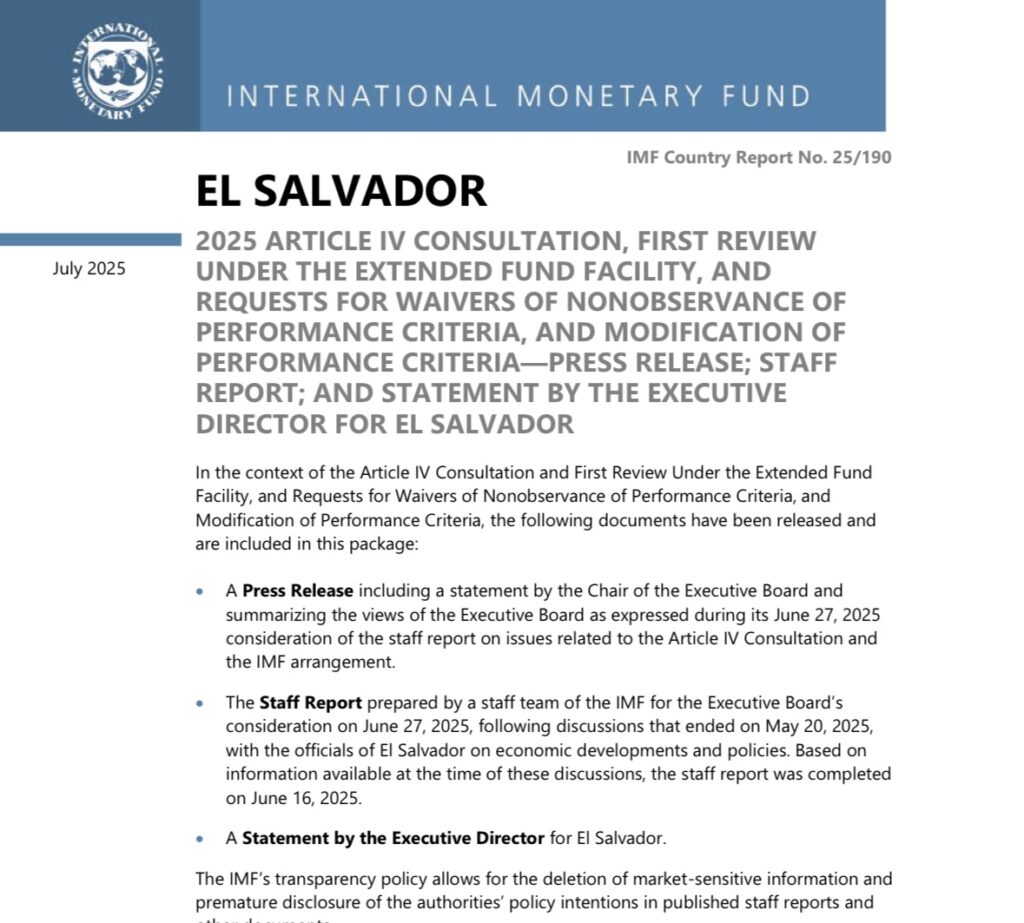El Salvador’s Bitcoin Gambit: Defying IMF Rules or Pioneering Financial Revolution?
El Salvador just flipped the bird to traditional finance—again. The IMF's rulebook? More like suggestions, apparently.
Bitcoin as legal tender was just the start. Now, President Nayib Bukele's administration stands accused of creative accounting to keep their crypto experiment alive. IMF compliance be damned.
The Financial Tightrope Walk
Sources claim El Salvador's using off-balance-sheet maneuvers to fund Bitcoin purchases. No official numbers yet, but leaked documents suggest nine figures in 'alternative financing'—because when has borrowing to buy volatile assets ever backfired?
Wall Street's watching through splayed fingers. One hedge fund manager quipped: 'They're either geniuses or future Harvard Business School cautionary tale material.'
The IMF's stuck between a rock and a hard place. Sanction the first crypto nation? Risk pushing others toward decentralized alternatives. Stay quiet? Watch their credibility erode like the purchasing power of fiat currencies.
Meanwhile, Bitcoiners cheer while traditionalists clutch pearls. Whatever happens next, one thing's clear: in global finance, the rules only matter until someone rewrites them.

In Brief
- The IMF reproaches El Salvador for circumventing the bitcoin non-accumulation objective via the Chivo Wallet.
- Technical risks and poor management led to minor violations, prompting corrective measures.
- IMF’s silence on current BTC purchases in El Salvador leaves strategic uncertainty.
El Salvador Violates Its Bitcoin Commitments: What the Latest IMF Report Reveals
The latest report published as part of the EFF (Extended Fund Facility) program highlights worrying discrepancies. According to the IMF, El Salvador did not comply with the bitcoin non-accumulation objective: although the government has not purchased new tokens since 2022, it allegedly consolidated existing holdings by transferring them into a new cold wallet, offline.

The IMF notes also that minor breaches of conditionality occurred due to BTC deposit fluctuations in Chivo Wallet, and the absence of an adequate liquidity management policy. When users sell their bitcoins, Chivo does not liquidate the underlying cryptocurrency, which mechanically increases public bitcoin holdings.
These discrepancies are monitored using portfolio control tools, including signed statements of Chivo’s “hot” and “cold” addresses, as well as a daily movement detection system. The IMF indicates, however, that corrective measures have been taken to establish a safety buffer and avoid new violations, especially before the planned sale of Chivo.
Chivo Wallet in Turmoil: Technical Risks and Impending Liquidation
Launched in 2021 to facilitate the use of bitcoin as legal tender, the Chivo Wallet quickly became one of the symbols of the country’s crypto strategy. However, it is also the subject of harsh criticism:
- Recurring technical failures;
- Vulnerabilities in cybersecurity;
- Lack of transparency on transactions and public funds.
These Chivo Wallet failures thus played a direct role in El Salvador’s failure to meet commitments under its agreement with the IMF. In response to criticisms, authorities announced the sale or divestment of Chivo Wallet, as well as the liquidation of Fidebitcoin, a public fund created to facilitate BTC-USD exchanges. These measures aim to mitigate future risks and remove public finances from daily crypto operations.
Bitcoin, Sovereignty, and Strategic Silence: The Shadow of the Bukele Plan
Since adopting Bitcoin as legal tender in September 2021, El Salvador has invested in the cryptocurrency with a logic of financial innovation. Nayib Bukele, a staunch advocate of this direction, sees it as a lever for economic independence.
However, returns have not met expectations. Investments made when BTC was above $40,000 are now highly debated. The country announced profits, but without verifiable data or an independent audit, the claim remains contested.
BTCUSD chart by TradingViewNotably, the IMF report makes no explicit mention of the bitcoin accumulation program led by President Bukele. This allows his administration to continue acquiring tokens without officially triggering non-compliance under the agreement. A strategic omission that raises questions.
This standoff confronts the IMF with a new equation: how to regulate cryptocurrency use while ensuring access to financing? The El Salvador case could set a precedent for other nations considering similar adoption, notably Argentina, which oscillates between bitcoin and dedollarization. The IMF’s credibility is also at stake. By targeting the Chivo Wallet and demanding greater transparency, the institution seeks to preserve its authority and enforce its fiscal rules.
Maximize your Cointribune experience with our "Read to Earn" program! For every article you read, earn points and access exclusive rewards. Sign up now and start earning benefits.

